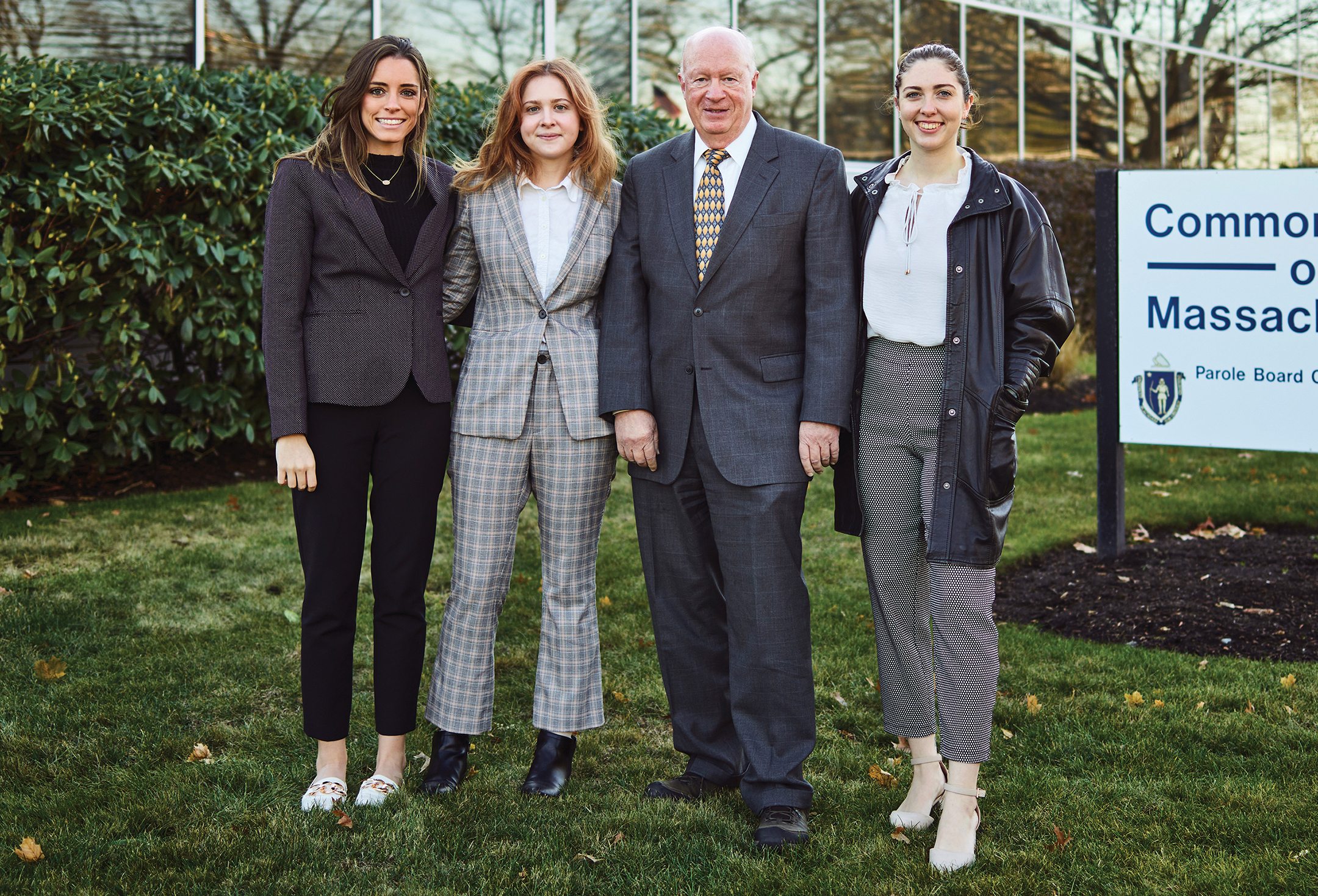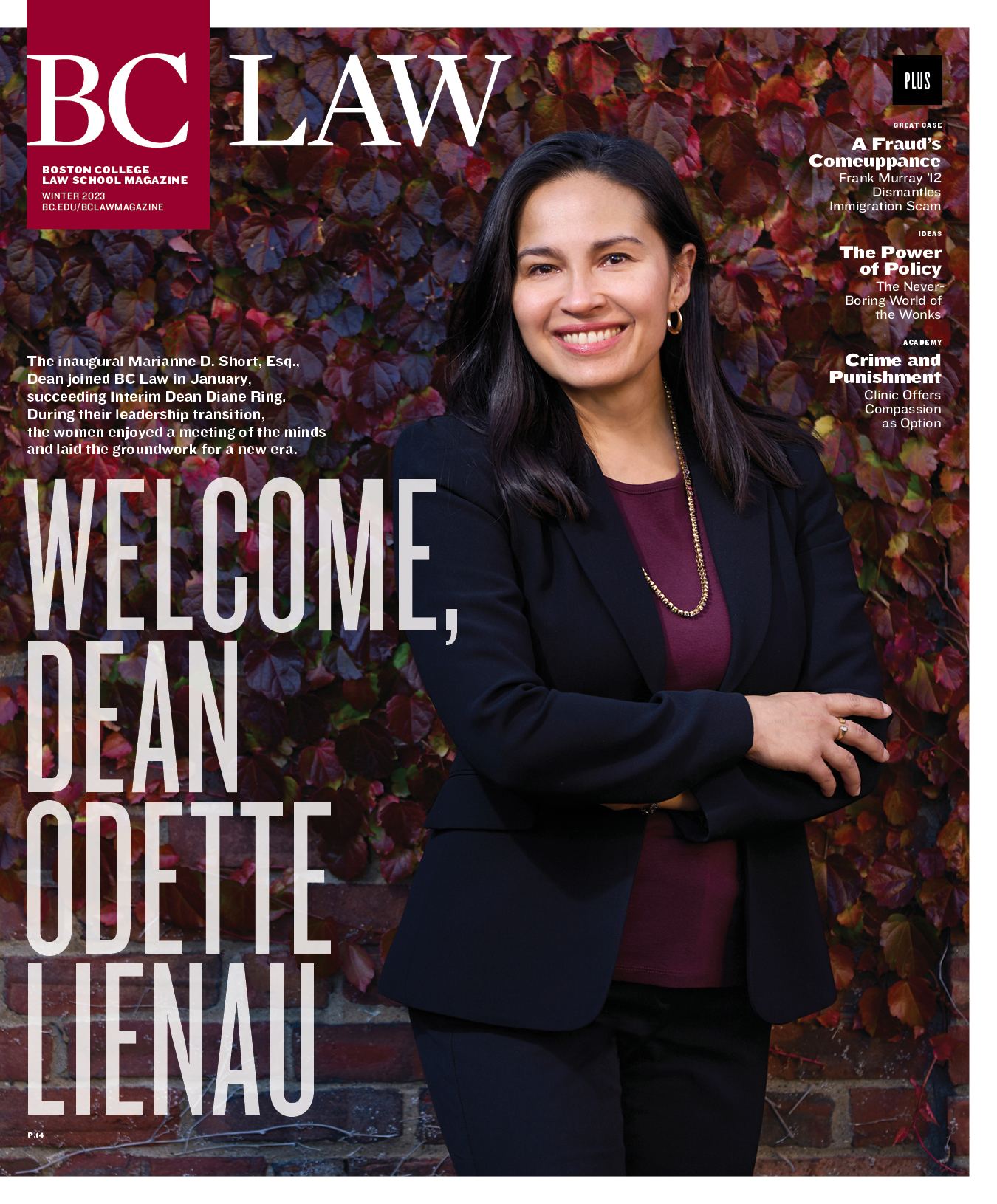In April 2018, Massachusetts enacted a much-lauded criminal justice reform act aimed at protecting some of the state’s youngest and most vulnerable citizens: Mandatory, statutory minimum sentences were eliminated for a wide swath of drug offenses, the age of criminal responsibility increased from seven to twelve, and district attorneys were required to create pre-arraignment diversion programs to keep certain offenders out of the criminal system altogether, among other changes.
But one of the most important—and controversial, to some—elements of the bill was targeted toward a commonly overlooked and particularly vulnerable population: incarcerated individuals.
The provision granted certain incarcerated individuals the right to seek medical release, also known as compassionate release, in cases of terminal illness or permanent incapacitation. Rather than live out the rest of their days behind bars under strict supervision, the terminally ill could petition to receive palliative care outside of state prison institutions, an issue that drew the attention of Boston College Law School Professor Emeritus Francis Herrmann ’77, SJ, who now directs a clinic to deal with such cases.
Since the bill’s passage, around fifty individuals have been granted medical release in Massachusetts, but many more have been denied.
Perhaps too many. A handful of cases before the Massachusetts Supreme Judicial Court have accused the Department of Corrections (DOC) of violating the spirit of the law. One such case dealt with Ray Harmon, convicted of murder in the first degree in 1987, who was sentenced to life in prison without parole (a “lifer”). In 2019, Harmon was diagnosed with stage IV pancreatic cancer, a death sentence handed down on top of his ongoing life incarceration. He filed a petition for medical release, which was summarily denied by the commissioner. He weighed a scant ninety-six pounds. Three months later he was dead, and his appeal dismissed as moot.
The DOC had determined that Harmon continued to pose a risk to public safety. Relatives of Harmon’s victim testified, understandably, against his petition; why should the man who failed to show his victim mercy in 1987 be granted clemency in his final days? The case raised a difficult question: How can a system built around seeking retribution for the most heinous crimes recognize the humanity of the worst offenders?
BC Law is rooted in the Jesuit tradition of commitment to others; a key tenet is the belief that every individual—rich and poor, young and old, incarcerated and free—is entitled to dignity. This belief was a motivating factor for Herrmann in establishing the Medical Release and Parole Clinic in 2019. The 2018 law had created a massive need for legal aid. “There was nobody else to help them… it seemed to fall to law schools,” Herrmann said.
The effort was originally called the Compassionate Release and Parole Clinic, but Herrmann eventually struck “compassionate” from the title, opting instead to use the term medical release. “[Compassion] evokes a reaction from people who oppose the release of certain incarcerated individuals. ‘He wasn’t compassionate when he murdered my relative, or my friend.’ Rather than fight that battle, we opted to change to Medical Release.” But even the current name might see a reckoning soon, according to Herrmann: “Because so few medical releases are actually granted in Massachusetts, I don’t want to mislead students into thinking this would be a major focus of the clinic, at least as things currently stand in the state.”
Even when the occasional medical release petition is granted, the incarcerated individual may have won a mere few days of freedom to make the most of what little life they have left.
Today, while the clinic’s major focus is on lifer parole opportunities, students still expend a great deal of effort assisting incarcerated individuals with medical release petitions. Referrals come from the Public Defender Office or Prisoners’ Legal Services of Boston, seeking volunteers to help with navigating the often-arcane rules for medical release. After the petition is filed, the superintendent or sheriff files a recommendation for or against release within twenty-one days; then, the DA and the victim or victim’s surviving family are permitted to provide statements in writing or, in cases of first degree murder, hearings. After receipt of all the required materials, the Department Commissioner makes a final decision within forty-five days. The unfortunate fact of the matter is that, sometimes, even forty-five days is long enough to render a petition for medical release moot, to borrow a euphemism from the court. And even when the occasional petition is, in fact, granted, the incarcerated individual may have won a mere few days of freedom to make the most of what little life they have left.
BC Law’s clinic steps in to help usher the petition along and maximize the potential release period in these cases. Since the clinic’s founding, law students have worked with between sixty and sixty-five lifers seeking parole, and about a dozen terminally-ill or severely incapacitated individuals seeking medical release.
The clinic provides an opportunity for students to practice legal skills and manage clients, according to Taylor Hobbs ’23, but there is considerable value beyond the typical law clinic experience that students receive: “From speaking with my clients and hearing their stories, I saw, firsthand, the role of rehabilitation and restorative justice in the criminal justice system. The clinic was my favorite experience in law school because of its moral component.”
Medical release isn’t without its detractors, who readily point to cases of abuse; disgraced former Speaker of the Massachusetts House of Representatives Sal DiMasi (Boston College ’71) was convicted on federal charges of fraud and extortion in 2011 and sentenced to eight years imprisonment, but released after five years while he was battling cancer. DiMasi is alive and well today, and provides fodder for those who would see the extent of medical release limited.
Herrmann is quick to disabuse these detractors, noting that the vast majority of felons granted medical release—perhaps every one released under the 2018 Massachusetts law, at least—die within the eighteen-month prognosis window, or at least remain so permanently incapacitated that the risk to public safety is nil. Nevertheless, he understands the hesitation to grant medical release petitions: “The default position in the legal world is adversarial. We don’t think, ‘Let’s cooperate with the person we see as our opponent.’ There are plenty of people [in the system] who do not feel inclined to grant parole in any case.”
Perhaps the clinic’s most important work, in light of this, is teaching aspiring lawyers that mercy is not a zero-sum game, and that justice can work for both victims and the incarcerated individuals who commit crime. As Herrmann explained, “The clinic exposes people to what it means to be human, in both its good and bad forms. People are more than their past deeds, and are capable of growth. The Jesuits make a point of saying that the faith should always be active in seeing justice done, and this clinic fits into that mission.”



